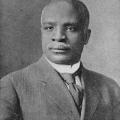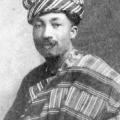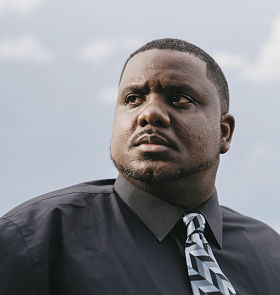70. Tommy Curry on the Early 20th Century
We chat with Tommy Curry about African-American thought between the turn of the century and the Harlem Renaissance.
Themes:
• T.J. Curry, “Concerning the underspecialization of race theory in American philosophy: How the exclusion of black sources affects the field,” Pluralist (2010), 44-64.
• T.J. Curry, “Philosophy born of struggle: Thinking through black philosophical organizations as viable schools of thought,” Radical Philosophy Review 18 (2015), 1-10.
• T.J. Curry (ed.), The Philosophical Treatise of William H. Ferris: Selected Readings from The African Abroad or, His Evolution in Western Civilization (London: 2016).
• T.J. Curry, “Ethnological theories of race/sex in nineteenth-century black thought: Implications for the race/gender debate of the twenty-first century,” in N. Zack (ed.), The Oxford Handbook of Philosophy and Race (New York: 2017), 565-75.
• T.J. Curry, Another White Man’s Burden: Josiah Royce’s Quest for a Philosophy of White Racial Empire (Albany: 2018).






Comments
Terrific interview
This was a wonderful interview - Dr Curry speaks with such clarity and insight, I enjoyed listening to him immensely. His comments on William Ferris in the context of late-nineteenth/early-twentieth-century ethnography were particularly rich. I'm fascinated by this dialectical movement of race/history which includes assimilation as a means from which humanity can be fully understood. It's also interesting to me how these thinkers like Ferris and Du Bois take up Hegelian dialectical thought but transform it into a sociological mode which affirms black humanity (an idea which isn't in Hegel, to say the least). I'm not sure if they read Hegel themselves, or caught the ideas in more contemporaneous thinkers, but either way it seems like Ferris is actualizing in that engagement with the European tradition the very reflective state he's writing about.
Deeply engaging, thanks so much again!
In reply to Terrific interview by Matthew
Great interview
Couldn't agree more! I'll pass that on to him.
Douglass Citation?
Dr. Curry cites at about 07:10 a speech Frederick Douglass made in 1854, and continues to paraphrase a part of that address with "when a Negro walks into a field with other animals, the animals address him or her as master." It was such a beautiful sentence I tried looking for the full measure, but all I could come up with was Douglass' "Claims of the Negro" commencement speech at Western Reserve. Is this what Dr. Curry was referencing? Douglass too has lovely passages in there concerning Man and Animals, but I was wondering if there was another source I'm missing. Regardless, Dr. Curry deserves credit for a Biblically-evocative image and rivals Douglass along the way.
Douglass Quote.
A very recondite author says, that " man is distinguished from all other animals, in that he resists as well as adapts himself to his circumstances." He does not take things as he finds them, but goes to work to improve them. Tried by this test, too, the negro is a man. You may see him yoke the oxen, harness the horse and hold the plow. He can swim the river; but he prefers to fling over it a bridge. The horse bears him on his back — admits his mastery and dominion. The barn-yard fowl know his step, and flock around
to receive their morning meal from his sable hand. The dog dances when he comes home, and whines piteously when he is absent. All these know that the negro is a MAN. NOW, presuming that what is evident to beast and to bird, cannot need elaborate argument to be made plain to men, I assume, with this brief statement, that the negro is a man.
Frederick Douglass, THE CLAIMS OF THE NEGRO, ETHNOLOGICALLY CONSIDERED, 1864, p.9.
Add new comment